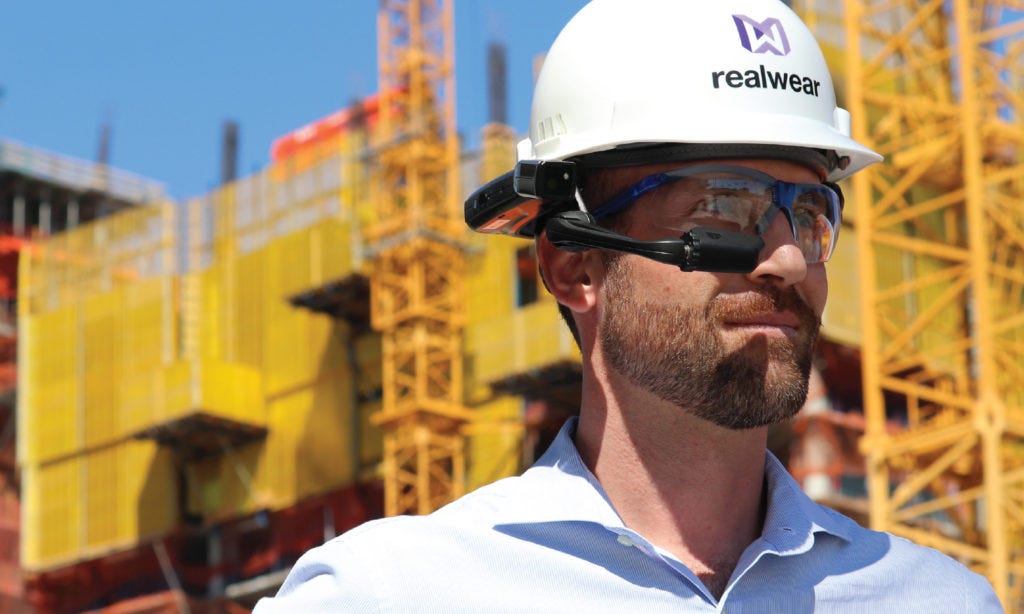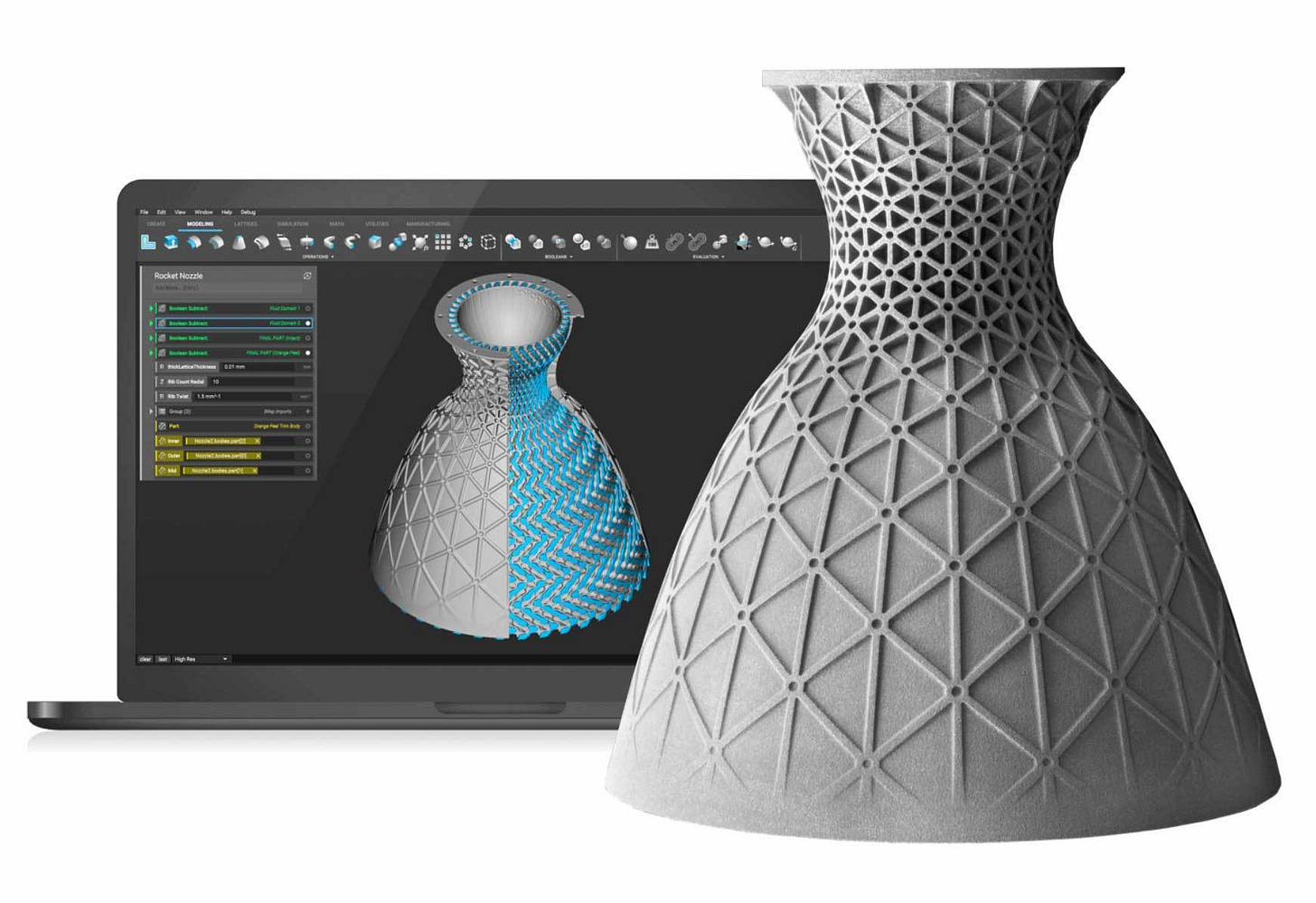Issue #19 - The Future of Manufacturing
👋 Welcome to Issue #19 👋
Topics this time: autonomous underground fulfillment-centers, IoT device management, warehouse automation, and new CAD software.
👉 This is probably the most comprehensive report about the status quo of Industry 4.0 - by GP Bullhound, including a small contribution from my side. I can highly recommend reading it and looking at all the data. Great work! 👈
⛰️🏃♂️Also - I will take a break in August to go running in the Alps so you will receive the next issue not before the end of September. ⛰️🏃♂️
As always, I hope you enjoy reading this and any feedback is much appreciated!
Disclaimer: thoughts and opinions expressed in the newsletter are my own.
What I've enjoyed reading
#warehousing#
📦In cities and dense areas, logistics for groceries and retail is very complex. If you want to deliver on-demand you have to be close to your customers but the limited space makes it challenging. That's why Israelian-based robotics startup CommonSense Robotics is developing underground automated micro-fulfillment centers. The company launched the first one in Tel Aviv from where retailers can fulfill delivery orders in less than one hour. Robots are used to bring items to teams of employees who pack the orders so that the micro-fulfillment center can service 400 orders per day. Here you can get a better idea of how it looks like:

#3dprinting#
🖨️ Two years ago already, New Balance teamed up with printer-maker Formlabs to see if they can develop a new type for sole for running shoes. Now they launched a new model of one of their classic running shoes with a new footbed technology that is lighter and more supportive than the previous ones. It's not a new idea to 3D print shoes, Adidas uses 3D printing for mass customization but in New Balance case it's about performance and not the shoe's appearance. Apparently, New Balance and Formlabs went through hundreds of iteration until they found the final product. Given how complex running is and how different humans run, I think it's awesome if you can customize a running shoe for its performance and according to your own needs.#AR#
👀 If you still think we're years away from enterprise adoption of AR, here is a counterexample: Realwear offers a hands-free voice-controlled user interface that is used by over 1,300 enterprise customers. They have shipped more than 15,000 devices and BMW wants to deploy the devices in all of its U.S. dealerships so that technicians can connect directly to engineering experts located offsite. I'm really excited about everything in manufacturing that can be controlled using voice. We are already using voice to control our Amazon Alexa or Google Home devices and in environments where people work with their hands, it makes even more sense. Realwear is making quite an effort that this works by using four microphones per device and leveraging noise cancellation. Is this the future of construction workers?

#automation#
🤖 Another month, another good article about the fact that humans are not going to be replaced anytime soon in warehouses and factories. Instead of focusing only on robots, Amazon is creating a new human-robot hybrid workforce where robots are only performing parts of the job. While robots are mostly moving goods from A to B, humans are very good at picking through piled-up packages and fill boxes with goods. Here is a relatively new video about an Amazon warehouse and how it works which gives you a good idea of its human-robot hybrid workforce.
#hardwarestartups#
⚒️ The Hardware Club- a community-based venture firm dedicated to full-stack companies - ran a survey among more than 100 community members. You can download the full report here - a few highlights:
It takes 3 months to find a contract manufacturer and ensuring quality is the founders' biggest challenge.
Hardware engineering positions are hard to fill - even harder than software engineering positions.
More than 50% of the participants expect an increase in M&A in the hardware space.
About industrial Startups and Companies
#CAD#
🖼️ One of the most interesting companies in the CAD space is nTopology. The company just announced that it raised a $20M round to increase its customer base. The software is mostly used in aerospace and automotive so far and is running on a different kernel compared to many other CAD tools. The key difference is what they call "implicit modeling" which means that bodies are represented with equations and not with their bounding surfaces like traditional CAD software. The advantage is that the object can be infinitely complex and engineers do not have to spend weeks on the redesign. I can highly recommend watching a few videos or a webinar if you want to understand the technology in more detail. If you are interested in this area, you should also check out Amendate which recently got acquired and Elise, both relatively new German companies. How nTopology looks like:

#warehousing#
📦 You probably haven't seen a Fetch Robot in an Amazon warehouse but the company is capitalizing on the same automation trends in logistics. Fetch has raised $46 million in its Series C led by Fort Ross Ventures which brings its total amount of funding to $94M. The flagship product helps companies such as DHL to move items around in their warehouses. Similar to what is described in the article about the Amazon warehouses, the robots are freeing up human workers for higher-value tasks. This is particularly important in today’s low unemployment environment. Notably, Geek+ that develops autonomous mobile robots raised a whopping $150M Series C at the same time. These robots are mostly used for picking, moving and sorting and are used by Chinese retailers such as Alibaba and Denso.
#fundraising#
🤑 The on-demand manufacturing marketplace Xometry has announced that they will expand to Europe and therefore raised a small round from Robert Bosch Venture Capital. It's always very interesting to see how marketplaces from the US expand to Europe given the differences and also the diversity of the European market. Just a few months before, 3D Hubs which is one of their competitors announced the opposite, i.e. expanding from Europe to the US. I think the market is huge and there will be several winners - Laserhub (*P9 investment) is also on a very good track to be one of them.
#fundraising#
🤑 Balena, an IoT device management platform just raised $14.4M from Open View Ventures. The tool allows companies to push updates to thousands of devices at once in a secure way and also delivers visibility into the health of these devices. The metrics underline that they are onto something, the number of devices on the platform grew six times year-over-year. Companies that are using Balena are from different areas such as Bosch in manufacturing but also Zume Pizza in food and OpenDoor in real estate. However, Balena is not the only player in the market. In fact, they face competition from the big players such as Microsoft’s Azure IoT Edge, Google’s Cloud IoT and of course also Amazon Web Services’ IoT Device Management. Time will tell if the market is big enough for another big player or if they can outpace the heavyweights.
Fun fact - our lovely Deutsche Bahn is updating its station clocks still with a USB stick :-)
Additional thoughts on recent development
Apprenticeships in Manufacturing#opportunity#
WhiteHatis a very interesting company. They are building an alternative to a university degree through apprenticeships. They are matching non-graduate talent to professional services and digital roles and deliver job-relevant applied learning content over the course of their apprenticeship. The company got started in 2016 and they're working together with companies such as Facebook, Salesforce, and BP.
I believe there is a big opportunity to build something similar for manufacturing and Mittelstand companies. Many companies in that area are desperately looking for successors, new talent and also apprenticeships. In Germany, the KfW estimated that by the end of 2019 alone 236k Mittelstand companies are looking for a successor. In addition, this report by Deloitte highlights that there may be up to 2.4 million unfilled positions by 2028 in the manufacturing industry.
Industrial Landscape #landscape#
There are now in total 300+ companies in the landscape (and 20+ on the waitlist):

Again, Thanks to everybody for supporting this newsletter and for sending me interesting links. As always, any input, shares, and feedback are always warmly welcome 🙏
Robin



